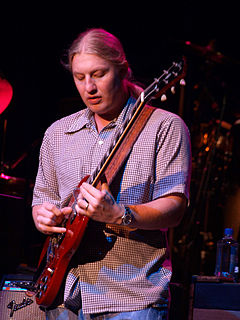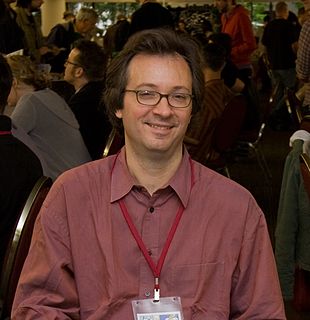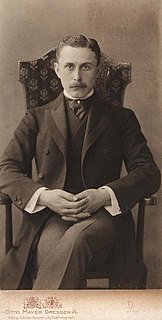A Quote by Christopher Alexander
There is one timeless way of building. It is a thousand years old, and the same today as it has ever been. The great traditional buildings of the past, the villages and tents and temples in which man feels at home, have always been made by people who were very close to the center of this way.
Related Quotes
I'm afraid what we are building today will not have the same impact and sustainability of the architecture of a 100, 500 or 1,000 years ago. The buildings of those days were miracles. We don't perform such miracles today. So we should be a little more modest. For my part, I'll be glad to show one of my buildings one day to my grandchildren and say: I'm proud of that.
What people don't seem to ever understand is that any infrastructure that exists under your regime, in your current government, will be appropriated and inherited by the next regime. I mean, the KGB came out of the NKVD which came out of the Tsarist version of the same thing. And now, the FSB operates out of the old KGB building in Moscow. The infrastructure remains exactly the same. There's a little bit of reshuffling of personnel, and that's it. The way to make sure that there's no FSB today would have been for the Tsar to not have built an infrastructure for it in the 1800s.
When I need to take a side, I write a newspaper article and I tell my government, "You should not do that, you should do this." They don't listen to me, but I've been doing this for sixty years now. But, when I write a novel, I am not in that business. I follow the way people change. I follow the way people, who are very antagonized to one another become very close to one another and vice-versa. Sometimes I follow the way people who are intimately close to each other move apart.
We were great mates [with Rajiv Gandhi]: very, very, very close friends. In fact, on my visit to India as Prime Minister, we were going to his home for dinner. There were two aspects I remember: one is him saying how he had trouble with his security people, because they insisted he wears a vest. He said it was very uncomfortable and he often took it off, but of course, in the end, it wouldn't have mattered if he'd been wearing three vests - he would have been gone.
We were taught to believe that the Great Spirit sees and hears everything, and that he never forgets; that hereafter he will give every man a spirit-home according to his deserts: if he has been a good man, he will have a good home; if he has been a bad man, he will have a bad home. This I believe, and all my people believe the same.
Economic systems work better when there's an extreme reliability ethos. And the traditional way to get a reliability ethos, at least in past generations in America, was through religion. The religions instilled guilt. ... And this guilt, derived from religion, has been a huge driver of a reliability ethos, which has been very helpful to economic outcomes for man.
If in the 1930s nuclear weapons had been invented and the Allies had been faced by Nazi SS20s and Backfire Bombers, would it then have been morally right to have handed Hitler control of one of the most terrible weapons man has ever made? Would not that have been the one way to ensure that the thousand year Reich became exactly that? Would not unilateralism have given to Hitler the world domination he sought?
It is possible to make buildings by stringing together patterns, in a rather loose way. A building made like this, is an assembly of patterns. It is not dense. It is not profound. But it is also possible to put patterns together in such a way that many patterns overlap in the same physical space: the building is very dense; it has many meanings captured in a small space; and through this density, it becomes profound.
I always wanted to sing, I always loved to sing. As a child I was singing all the time, and my parents were singing all the time, but not the traditional songs because they were very Christian; the Christian Sámis learnt from the missionaries and the priests that the traditional songs were from the Devil, so they didn't teach them to their children, but they were singing the Christian hymns all the time. So I think I got my musical education in this way. And of course the traditional songs were always under the hymns, because it doesn't just disappear, the traditional way of singing.
Another argument of hope may be drawn from this-that some of the inventions already known are such as before they were discovered it could hardly have entered any man's head to think of; they would have been simply set aside as impossible. For in conjecturing what may be men set before them the example of what has been, and divine of the new with an imagination preoccupied and colored by the old; which way of forming opinions is very fallacious, for streams that are drawn from the springheads of nature do not always run in the old channels.







































